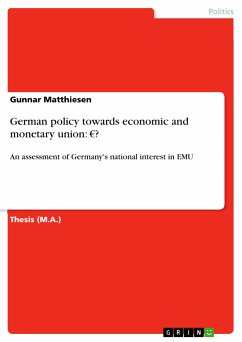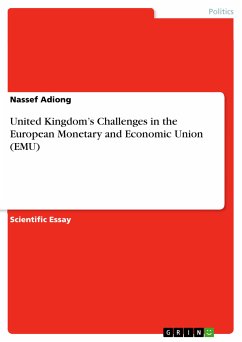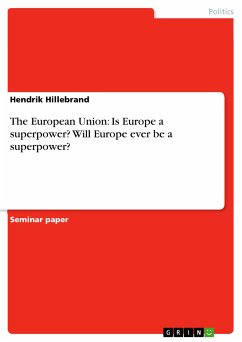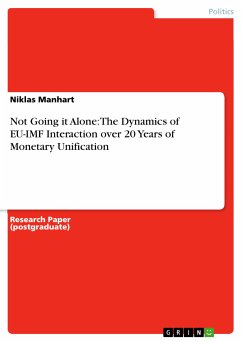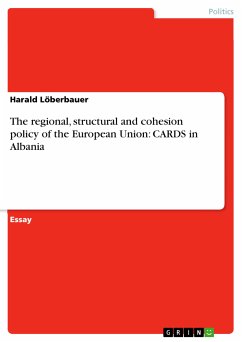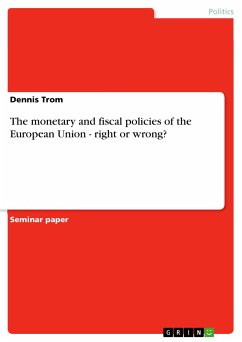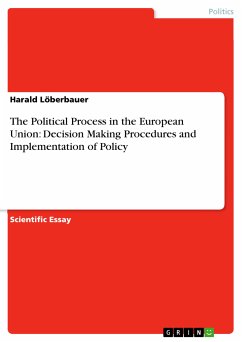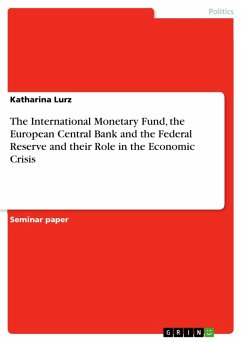Thesis (M.A.) from the year 1999 in the subject Politics - International Politics - Topic: European Union, grade: very good, University of Canterbury (Department of Politics and International Relations), language: English, abstract: The purpose of this paper is to explore the German national interest in European Economic and Monetary Union. Although not ignoring economic arguments, the analysis focuses on the arguably even more important political benefits and interests. The first chapter introduces EMU from a European perspective, as the next logical step to complete the Single Market and as a source of economic advantages for EU member states. However, it is also an important vehicle for the aim of political union. Hence, in view of Germany′s traditional position in Europe, the progress EMU represents in terms of achieving European unity is a significant factor that led to the unequivocal attitude of the Kohl government favour of EMU. The absolute necessity for Germany to advance the integration process was emphasised by German unification and the resulting political impossibility to refuse EMU as international support for a unified Germany was tied to stronger European integration. In addition, the common currency has benefits for Germany′s foreign trade reliant economy which seem to outweigh the economic doubts. Nevertheless, these concerns did play a role in defining political approaches and have influenced both the opposition′s stance and government policy towards EMU. The government aimed to ensure the Euro′s long term stability by insisting on the Maastricht criteria and the stability pact. The uncompromising approach in this area, which is one of the first occasions for Germany to staunchly defend its national interest in terms of the EU′s internal structures against a majority of member states, was necessary to secure political and public consent within Germany, but was met with dismay in other countries. While there was little open political opposition against EMU, public opinion was not fully supportive of EMU. However, scepticism of the common currency largely relied on economic uncertainties rather than on opposition against the European integration process and has never been strong enough to mobilise a public movement against EMU. It is deduced that EMU is in Germany′s the long term interest on every level if certain conditions are met. The government′s policy to create a favourable environment for a single currency in spite of short term economic costs is motivated by a combination of the above factors and a recognition of the long term political and economic benefits, and is a continuation of Germany′s traditional commitment to the European integration process.
